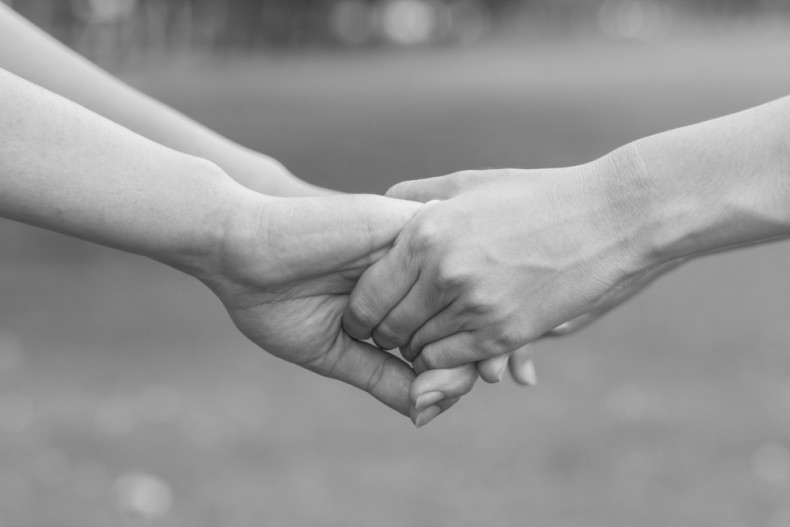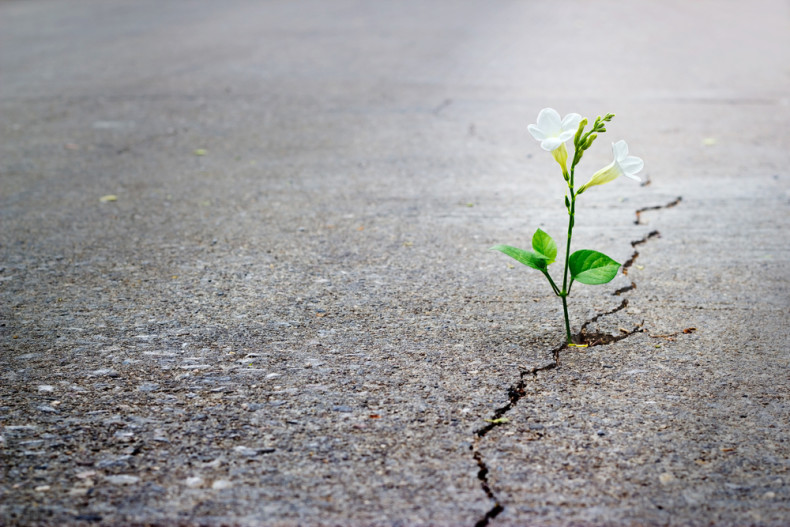 Being human is hard. Sometimes we treat each other poorly, putting our own feelings or wellbeing first. Mathematical-game models explain the logic behind selfish acts, suggesting that they often make the best sense. (Remember the Prisoners’ Dilemma?)
Being human is hard. Sometimes we treat each other poorly, putting our own feelings or wellbeing first. Mathematical-game models explain the logic behind selfish acts, suggesting that they often make the best sense. (Remember the Prisoners’ Dilemma?)
But straight-up logic dismisses empathy. The truth is that deep down, and sometimes even up near the surface, we’re actually quite good. Intuitively, we’re generous and cooperative. When given the choice to share and to trust that others will do the same, even if a selfish move promises a better individual outcome, most of us lean toward collaboration and shared gain.
Being kind can be catching. Hearing about a Good Samaritan’s good behavior, for example, may encourage us to do something nice, too. I know I’ve felt that way. As others make positive gestures around me, I often think, What have I done lately that’s not utterly about me? I like to think I’m a giving person, but when I break down my day-to-day actions, I’m sadly lacking in charity.
Friend and writing colleague Ann Finkbeiner recently posted a beautiful essay about how meaningful her friends’ and neighbors’ little generosities were as she mourned her husband’s death. I was part of a group who sent Ann a wool blanket as a gift we hoped would soothe her. She wrote to us when it arrived to say she loved it, that it was the perfect thing to help ease the kind of pain she was feeling. I felt warm inside reading her note, and good about myself for participating—reminding me that even kindness can have a selfish motive. Regardless, that ability to empathize and offer comfort is one capability we humans can be proud of.
But negativity often reigns in our lives. As a writer, I tend to produce my best work when I’m angry or sad, and my personal essays lean toward melancholy or snark or have a thin veneer of ha ha pasted over my usual angst.
Since Ann’s post, though, I’ve been trying to see the good in things, to be grateful for the kinds of small compassions she wrote about, and to remember that positive thinking is good for us. Higher optimism, in fact, is linked to ideal cardiovascular fitness. I love the idea that being upbeat is heart healthy.
Even manipulating our faces into a smile and forcing a laugh when we’re grouchy or stressed can help us to feel better (and has healthy heart effects, too). Endorphins, which leap into action when we grin or giggle, are apparently easily fooled…to our benefit.
So, I’m giving in to optimism this week, appreciating a few special moments of kindness. The experiences were extra surprising because they occurred as I was inching down a crammed New York City street during afternoon rush hour—not where and when you’d expect to witness people’s charitable natures.
It was cold near the corner of 44th and 8th, and the street was a wind tunnel. I had bare knees and a coat with a broken zipper (but a working hood, thankfully) and two bags plus a suitcase on wheels. I wasn’t in the right place to catch a taxi, really—buses blocked the curb and I had to stand smack-dab in traffic to be seen. Before I could move or even free an arm to hail the first yellow cab I saw, the driver angled into a too-small gap in front of me to a chorus of horn blasts, his car’s ass end hanging out. The passenger door popped open and a harried-looking blond woman swung her legs to the street. She smiled through worn-off makeup and tired eyes and pulled a heavy purse over her shoulder. “My stop is around the corner,” she said, but she’d seen me there, a shivering, taxi-hailing novice, and insisted the driver drop her early so I could have the ride. That was really nice.
And then, once I settled into the car and told the cabbie where I was going, he picked up the woman’s kindness and carried it along. We’d already pulled back into traffic when he said the train station was behind us. We’d have to go several blocks out of the way, sloth slow, to get ourselves turned around. Instead, he pointed out a virtually windless alleyway and suggested I scoot through and grab a cab at the other end, on the next street over. “It will save you money and much time,” he said, thickly accented. I tried to give him a few bucks but he waved my hand away and smiled and wished me good luck. I smiled back and the warmth from the cab stayed with me to the sidewalk.
They say bad things happen in threes. Maybe good things happen in twos. It would be nice if it were the other way around, but a pair of niceties isn’t bad, especially on a cold-to-the-bone day in New York City.
And it made me want to pay it forward, as they say. So, outside of Penn Station, I dug out an apple (and a napkin) from my bag and gave it to a homeless guy who looked so hopeless in the eyes that I wanted to put my arm around him. (I decided against the hug.) He looked surprised at the food offering; clearly he is ignored most of the time. He smiled and I smiled. And that felt good, too. (I was relieved to see he had enough teeth to get through the hard fruit.)
If a good deed brings a reward—even one as basic as making the do-gooder feel good, too—does that diminish the goodness of the deed? Does it matter?

Nah. Motive or no, the deed sends a positive message that is carried onward. And I think it’s bigger than that. As we humans decide what’s good and fair and generous, we help to shape a culture that recognizes positivity and appreciates collaboration. Does each kind act change the world? Of course not. But if each offers someone a little hope, that’s one step toward a more hopeful society overall. It’s entirely up to us to turn negative thinking around, one person, one goofy smile, at a time.
So, send the blanket, share the cab, give your Granny Smith to someone who may otherwise eat cold fries from a public trashcan. Good begets good. It doesn’t matter why.
—-
For deeper thoughts on, among other things, how generosity shapes society, check out this lecture about Adam Smith’s The Theory of Moral Sentiments.
Photos from Shutterstock
I love posts that seem to flow as streams, where it feels that however difficult the act of writing them, each word fits in a way that it would be noticed if it hadn’t been used. This is one of those posts. It followed the channel all the way down to the river. This is the first of yours I have read, and it caught me by surprise. Thank you. jb
What kind words! Thank you!
Dear Jenny, I was going to write with a positive comment on this essay. Unlike the kind words from James B above, I am privileged to be able to ALWAYS , since you first began writing so long ago, be able to kiss and hug and love you AND your writing. But this particular essay made me feel especially proud because I think that just maybe you watched me with people or things that needed my help. And if you did and if you rubbed a bit of the things I did in life to be kind to others who needed a special squeeze, I am elated. If not I am still a very loving and proud Aunty. ( Being kind of mean to Adam doesn’t count. He was a really cute kid.But he can really be exasperating.) I did enjoy the essay, so much I am sitting here writing to you even though I should me moaning around somewhere. Hope all is well and give your handsome husband a kiss from me. It will make you feel even more wonderful.
see above comment